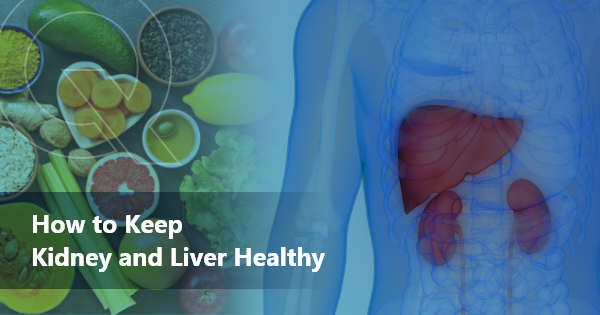In the fast-paced modern life, safeguarding our heart health is paramount. A resilient heart forms the cornerstone of overall well•being, ensuring vitality and longevity. As we navigate through daily challenges and choices, it becomes imperative to adopt habits that nurture cardiovascular health. This blog serves as a guide, unraveling the key principles and practices that contribute to a robust heart. By understanding the importance of lifestyle choices, stress management, regular health check•ups, and more, we embark on a journey towards a heart-healthy lifestyle. Let’s explore the pathways to a stronger, healthier heart that not only beats with vitality but also propels us towards a fuller, more vibrant life.
Contents
Lifestyle Habits
Maintaining a healthy heart involves adopting lifestyle habits that prioritize cardiovascular well-being. Here are key practices to integrate into your daily life:
1. Regular Exercise:
• Engage in aerobic exercises like brisk walking, jogging, or swimming.
• Include strength training to enhance muscle and heart health.
• Aim for at least 150 minutes of moderate•intensity exercise per week.
2. Balanced Diet:
• Embrace a diet rich in fruits, vegetables, whole grains, and lean proteins.
• Reduce intake of saturated fats, trans fats, and sodium.
• Prioritize heart•healthy fats found in olive oil, avocados, and nuts.
3. Adequate Sleep:
• Establish a consistent sleep schedule with 7-9 hours of quality sleep.
• Create a calming bedtime routine to improve sleep quality.
• Quality sleep supports overall heart health and reduces stress.
4. Stress Management:
• Practice mindfulness meditation and deep breathing exercises.
• Incorporate stress-relief activities like yoga or hobbies.
• Maintain a healthy work-life balance and nurture supportive relationships.
5. Regular Health Check-ups:
• Monitor blood pressure, cholesterol levels, and overall heart health.
• Seek professional advice for personalized guidance on heart care.
• Detecting and addressing potential issues early is key to prevention.
6. Avoiding Harmful Substances:
• Quit smoking and avoid exposure to secondhand smoke.
• Limit alcohol intake to moderate levels.
• Stay informed about the potential risks of substance abuse.
By integrating these habits into your lifestyle, you lay a robust foundation for a healthy heart. Consistency is key, and these practices collectively contribute to not just the health of your heart but to your overall well•being. As we delve into specific aspects like hydration and conclusion, remember that each small step towards a healthy lifestyle adds up to significant benefits over time.
Regular Health Check-ups
Regular health check-ups are crucial for maintaining optimal heart health and preventing potential issues. Here’s a breakdown of key elements to consider during routine health assessments:
1. Blood Pressure Monitoring:
• Regularly check your blood pressure to ensure it falls within the healthy range.
• Elevated blood pressure can strain the heart, leading to cardiovascular problems.
2. Cholesterol Levels:
• Monitor cholesterol levels, including LDL (“bad” cholesterol) and HDL (“good” cholesterol).
• High levels of LDL cholesterol can contribute to plaque buildup in arteries.
3. Blood Sugar Tests:
• Assess blood sugar levels regularly, especially if you have diabetes or are at risk.
• High blood sugar increases the risk of heart disease.
4. Body Mass Index (BMI):
• Calculate and monitor your BMI to assess if your weight is within a healthy range.
• Maintaining a healthy weight is crucial for heart health.
5. Heart Rate and Rhythm:
• Regularly check your heart rate and rhythm.
• An irregular heartbeat may indicate underlying heart issues.
6. Doctor Consultations:
• Schedule regular visits with a healthcare professional.
• Discuss family history, lifestyle, and any concerns related to heart health.
7. Screenings for Other Conditions:
• Consider screenings for conditions like diabetes, as it impacts heart health.
• Early detection and management of these conditions contribute to overall heart well•being.
Prioritizing regular health check-ups empowers you to stay proactive about your heart health. These assessments provide valuable insights, allowing for early intervention and lifestyle adjustments. As we move forward to explore the importance of hydration and conclude our discussion, remember that prevention through regular monitoring is a cornerstone of heart care.
Avoiding Harmful Substances
Steering clear of harmful substances is a pivotal component of maintaining a healthy heart. Consider these guidelines to protect your cardiovascular well-being:
1. Quit Smoking:
• Smoking is a major risk factor for heart disease; quitting is the single most impactful step.
• Seek support from cessation programs or healthcare professionals for a successful quit journey.
2. Limit Alcohol Intake:
• Consume alcohol in moderation, if at all.
• Excessive alcohol can elevate blood pressure and contribute to heart-related issues.
3. Stay Informed about Substance Abuse:
• Be aware of the potential risks associated with illicit drugs or prescription misuse.
• Seek help if you or someone you know struggles with substance abuse.
4. Manage Stress without Substance Use:
• Avoid using substances such as alcohol or tobacco as coping mechanisms for stress.
• Adopt healthier stress management strategies like exercise, meditation, or counseling.
5. Limit Caffeine and Energy Drinks:
• Consume caffeine in moderation, as excessive intake can lead to increased heart rate.
• Be cautious with energy drinks, as they may contain high levels of caffeine and other stimulants.
6. Check Medication Interactions:
• Consult with healthcare providers about potential interactions between medications and substances.
• Some medications may negatively affect heart health when combined with certain substances.
By consciously avoiding harmful substances, you not only protect your heart but also contribute to your overall well-being. It’s essential to stay informed, make informed choices, and seek professional guidance when needed. As we delve into the significance of hydration and conclude our discussion, remember that a commitment to a healthy lifestyle involves both positive actions and the avoidance of detrimental habits.
Wrapping up
In conclusion, fostering a healthy heart involves embracing key lifestyle habits like regular exercise, a balanced diet, and adequate sleep. Prioritizing stress management, scheduling regular health check-ups, and steering clear of harmful substances are equally vital. These proactive measures lay the groundwork for cardiovascular well-being, ensuring a resilient heart. Remember, each positive choice, whether it’s a mindful breath or a nutritious meal, contributes to a longer, healthier life. Stay committed to self-care, consult healthcare professionals as needed, and savor the journey towards a heart-healthy lifestyle. Your heart deserves the best, and these steps pave the way for a vibrant, thriving future.





![Blood Test for Hair Loss [Male/Female] Blood Test for Hair Loss](https://oncquest-blog.s3.ap-south-1.amazonaws.com/blog/wp-content/uploads/2023/12/12044200/Blood-Test-for-Hair-Loss.webp)